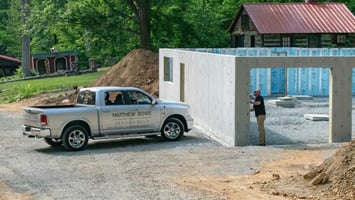In the construction and building industry, the role of a leader extends beyond just overseeing projects and managing teams. True leadership involves a blend of curiosity and humility—traits that are indispensable in fostering a collaborative and innovative work environment. As we navigate the complexities of building and construction, embracing these qualities can significantly enhance our effectiveness and the success of our projects.
The Power of Curiosity
Curiosity is the fuel that drives innovation and efficiency in any field, especially in building and construction. It compels us to explore new technologies, methodologies, and practices that could revolutionize the way we work. But more importantly, curiosity pushes us to delve deeply into the heart of our projects—the intricate details of the trades.
When we approach our projects with a curious mindset, we are not just overseeing; we are actively participating in a learning process. This involves engaging with our trade partners to understand their challenges, the specifics of their tasks, and the tools they use. It’s about asking thoughtful questions that show a genuine interest in the aspects of work that might otherwise be overlooked.
For instance, discussing the latest machinery or software with a subcontractor not only provides us with a deeper understanding of potential project efficiencies but also helps in identifying areas where improvements can be made. By understanding the nuances of each trade, we can better coordinate and integrate these into the overall project, leading to better outcomes.
Humility as a Leadership Strength
While curiosity opens the door to knowledge, humility helps us navigate that door without stepping on toes. In the construction industry, where various experts come together to contribute to a single project, humility is crucial. It’s about acknowledging that while you may be an expert in your field, there are other areas where trade partners know significantly more.
Humility in leadership is demonstrated when we listen more than we speak, and we accept that learning is a continuous process. It involves respecting the expertise of our trade partners and understanding that questioning their work isn’t about doubting their abilities but about seeking clarity and learning to enhance project efficiency.
This approach not only helps in avoiding any sense of condescension but also fosters an environment of mutual respect. It shows that we value their contributions and are open to learning from them, which can lead to more innovative solutions and improvements in project outcomes.
Gaining Perspectives through Respectful Questioning
Respectful questioning can open up new perspectives that we might have missed. When we ask our trade partners about their processes or the rationale behind certain choices, we are essentially viewing the project through their lens. This can reveal insights into how different elements of the project interact or highlight potential issues that might not have been evident from our vantage point.
For example, a casual conversation about a particular building technique might reveal its advantages over traditional methods, which could lead to cost savings or enhanced durability of the structure. By gaining these perspectives, we can make more informed decisions that benefit the project as a whole.
Applying Curiosity and Humility in Our Jobs
To effectively apply curiosity and humility in our jobs, we can adopt a few practical approaches:
- Active Learning: Set aside time to learn about the latest developments in the building industry. Attend workshops, seminars, and engage with thought leaders to expand your knowledge base. Engage in Field Visits: Regularly visit job sites not just to supervise but to engage with workers and understand their day-to-day challenges and successes. These insights can be invaluable.
- Encourage Feedback: Create channels where trade partners can provide feedback on processes and management styles. This not only shows humility but also opens doors to potential improvements. Foster Open Communication: Encourage a culture where questions are welcomed, and knowledge sharing is the norm. Make it clear that everyone’s perspective is valued and that the ultimate goal is the success of the project.
By integrating curiosity and humility into our work ethic, we not only enhance our own leadership but also contribute to creating a more knowledgeable, respectful, and efficient working environment. These traits empower us to lead not just with authority but with wisdom and respect, paving the way for more successful projects and a more cohesive industry.
The combination of curiosity and humility in the building industry serves as a cornerstone for innovative leadership. It ensures that we are constantly learning and respecting the contributions of everyone involved, which in turn drives the success of our projects and the advancement of our field.




